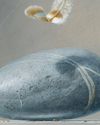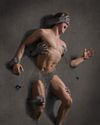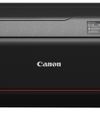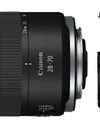
The Canon EOS R50 is the new, budget beginner APS-C mirrorless camera. Could this be the affordable, smaller EOS R mirrorless you’ve been waiting for? Or the camera to make you switch from your old DSLR? Or the R50 could be a smaller carry-aroundwith-you compact camera to complement your bigger DSLR setup!
The R50 is basically a newer, cleverer replacement for the M50 line. Even though the M50 will continue to be sold, and the EOS M system will continue to be supported (for now).
Still, it’s pretty inarguable that the Canon EOS R50 is the spiritual replacement for the Canon EOS M50 Mark II, released in 2020 (as a very marginal update to the original Canon EOS M50 from 2018). And the R50 manages to supersede its predecessor in almost every way. Its compact size and all-around capability qualifies it as one of the best travel cameras, with its low cost of entry and beginner friend-liness continuing the M50 lineage as one of the best cameras for vlogging.
The fact that it shares the same RF mount as EOS R cameras like the Canon EOS R5 and Canon EOS RP gives the R50 access to a rich, cutting-edge and ever-increasing line of Canon RF and RF-S lenses. Though at the same time, this does create an issue where a tiny camera has to use lenses designed for bigger bodies.
Here’s the full story of how the Canon EOS R50 breaks down, what it does, who it’s for, and where it stands in Canon’s increasingly complex catalogue.
New features
Esta historia es de la edición May 2023 de PhotoPlus : The Canon Magazine.
Comience su prueba gratuita de Magzter GOLD de 7 días para acceder a miles de historias premium seleccionadas y a más de 9,000 revistas y periódicos.
Ya eres suscriptor ? Conectar
Esta historia es de la edición May 2023 de PhotoPlus : The Canon Magazine.
Comience su prueba gratuita de Magzter GOLD de 7 días para acceder a miles de historias premium seleccionadas y a más de 9,000 revistas y periódicos.
Ya eres suscriptor? Conectar

The Art of Copying Art - James Paterson shows you how to use your Canon gear to capture artwork and paintings the right way with simple camera and lighting skills
Whether you want to capture a painting like the above, digitise old prints or reproduce any kind of canvas, there's real skill in capturing artwork with your camera. Not only do you need the colours to be accurate, you also need to master the spread, angle and quality of the light to minimise glare and show the work at its best.This painting by the artist Bryan Hanlon has a wonderfully subtle colour palette. To reproduce the painting in print and digital form, it needs to be captured in the right way.

Fright night
Canon photographer and digital artist Alexander loves to craft incredible fantasy scenes with a spooky horror twist

Sharpen your shots with DPP
Sharpening a digital image also increases contrast at the edge of details

CANON ImagePrograf PRO-1100
Deeper blacks, better bronzing, greater lifespan and 5G Wi-Fi -Canon's new printer is full of new tech, says

Canon's new 'kit lens' is actually a half-price f/2.8 trinity lens!
The Canon RF 28-70mm F2.8 IS STM lacks a red ring, but borrows premium features from its L-series siblings

DREW GIBSON
Pro motorsports photographer Drew on why he hasn't (yet) switched to Canon's mirrorless system, why old-school techniques can be the most reliable, and the lessons learned from more than a decade shooting the world's biggest car brands

Up in smoke
Make a smoky shape in Affinity Photo and get to grips with the amazing Liquify Persona under the guidance of James Paterson

Expand your creativity with Generative Fill
Photoshop's Al-powered feature brings revolutionary new tools to image editing. James Paterson reveals all...

Turn your images into vintage postcards
Wish you were here? Sean McCormack explains how you can give your summer photographs a vintage postcard look

The Angel Malibu
Light painting an American movie producer in the Wadi Rum Desert in Jordan was a highly unlikely evening out for David!